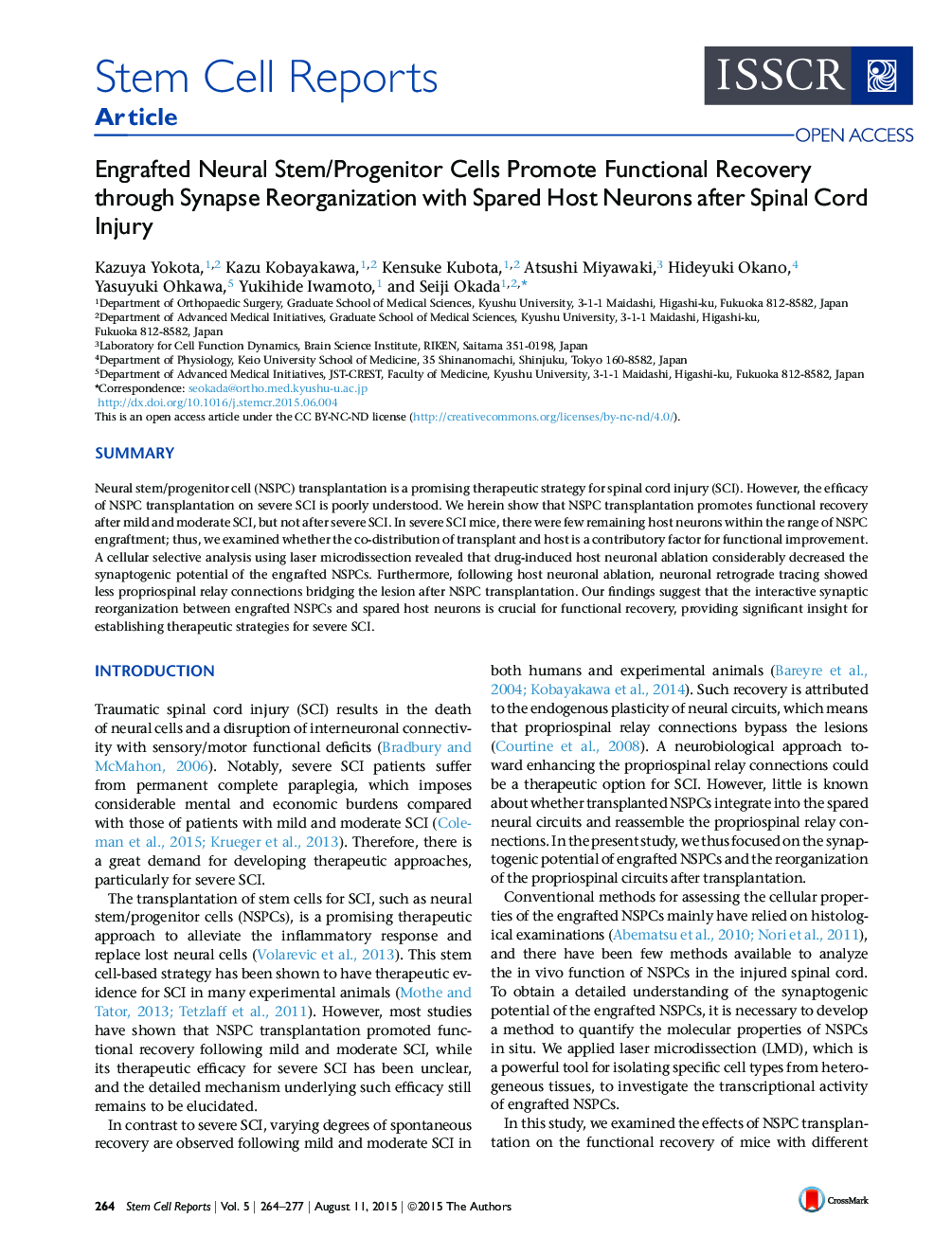| Article ID | Journal | Published Year | Pages | File Type |
|---|---|---|---|---|
| 2093518 | Stem Cell Reports | 2015 | 14 Pages |
•NSPC transplantation has almost no effect on the functional recovery after severe SCI•Host neuronal ablation negates the efficacy of transplantation even for moderate SCI•Laser microdissection reveals the in vivo synaptogenic profiles of engrafted NSPCs•Engrafted NSPCs promote the reorganization of neural circuits through synaptogenesis
SummaryNeural stem/progenitor cell (NSPC) transplantation is a promising therapeutic strategy for spinal cord injury (SCI). However, the efficacy of NSPC transplantation on severe SCI is poorly understood. We herein show that NSPC transplantation promotes functional recovery after mild and moderate SCI, but not after severe SCI. In severe SCI mice, there were few remaining host neurons within the range of NSPC engraftment; thus, we examined whether the co-distribution of transplant and host is a contributory factor for functional improvement. A cellular selective analysis using laser microdissection revealed that drug-induced host neuronal ablation considerably decreased the synaptogenic potential of the engrafted NSPCs. Furthermore, following host neuronal ablation, neuronal retrograde tracing showed less propriospinal relay connections bridging the lesion after NSPC transplantation. Our findings suggest that the interactive synaptic reorganization between engrafted NSPCs and spared host neurons is crucial for functional recovery, providing significant insight for establishing therapeutic strategies for severe SCI.
